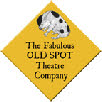
…A long time ago, before DVD, VHS, PCs, Apple Macs and the steam wireless, entertainment was different, and watching it was done in larger groups than now. The skills of its practitioners were designed to entertain as wide an audience range as possible, both structurally and by each performer’s individual skills. The epitome of both skills and structure was the Italian Commedia dell’arte; in which highly refined specialists performed complex comic plots through a mixture of improvisation and rehearsal. Each performer played a role from a different social class and wore a stock mask and costume to make them easier to recognise.
The overall effect was of instantly recognisable character types that an audience could relate to viscerally and immediately, and hence dispense with large amount of comically redundant theatrical exposition, so beloved of psychological theatre. In other words, once the characters were onstage, you could cut to the chase immediately, get involved in complicated plots, multiple disguises and the like because the whole audience intuitively understood each character. Even better, the characters were recyclable, in that the same roles appeared in all the commedia dell’arte shows, but with different relationships, much in the same way Blackadder or The Carry On Films functioned
Who were these characters then? Generally they fell into economic categories: Masters, Servants, Children, and Lovers, all with distinct Italian regional characteristics. Pantalone, the Venetian Miser, for us becomes Titus Dallymore, the Berkeley Vale farmer and Doctor Lombardi, the Bolognese lawyer, pedant and know-it-all becomes, Dr. Ignatius O’Reilly, the London trained expert in everything you need to know. Their children, Florence and Jack become anglicised and fight for their ever-growing love with both Italian passion and English embarrassment. They are the lovers, whose eventual consummation provides the drive for the plot. The servants of the commedia, Brighella, Columbina, Harlequin and Zanni become respectively landlords, waitresses, labourers and labour-migrants, all with their own desperate individual desires and difficulties.
So, in order to create a style of theatre that can survive for a wide a range of audience as possible, and all at the same time, we have borrowed the masks and comic relationships of these Italian antecedents and brought them to our own theatrical never-never land: the merry England that never existed, to tell parables about today, to remind us all that no one person is better than another, that we are all capable of good and evil, that we all live in Gloucestershire, that Gloucestershire is as good a place as any, if not better to start, to celebrate farming, wild life, thrift, generosity, love, revenge, town, country, eels, sheep, our history and our future.
As living becomes faster, as car journeys become more and more necessary for the everyday graft of living, then at least once a year take the time to walk to your village hall, to see a show, with you family, with your neighbours, with the folk who live in your village and sit down and enjoy some truly excellent live theatre.
The overall effect was of instantly recognisable character types that an audience could relate to viscerally and immediately, and hence dispense with large amount of comically redundant theatrical exposition, so beloved of psychological theatre. In other words, once the characters were onstage, you could cut to the chase immediately, get involved in complicated plots, multiple disguises and the like because the whole audience intuitively understood each character. Even better, the characters were recyclable, in that the same roles appeared in all the commedia dell’arte shows, but with different relationships, much in the same way Blackadder or The Carry On Films functioned
Who were these characters then? Generally they fell into economic categories: Masters, Servants, Children, and Lovers, all with distinct Italian regional characteristics. Pantalone, the Venetian Miser, for us becomes Titus Dallymore, the Berkeley Vale farmer and Doctor Lombardi, the Bolognese lawyer, pedant and know-
So, in order to create a style of theatre that can survive for a wide a range of audience as possible, and all at the same time, we have borrowed the masks and comic relationships of these Italian antecedents and brought them to our own theatrical never-
As living becomes faster, as car journeys become more and more necessary for the everyday graft of living, then at least once a year take the time to walk to your village hall, to see a show, with you family, with your neighbours, with the folk who live in your village and sit down and enjoy some truly excellent live theatre.
